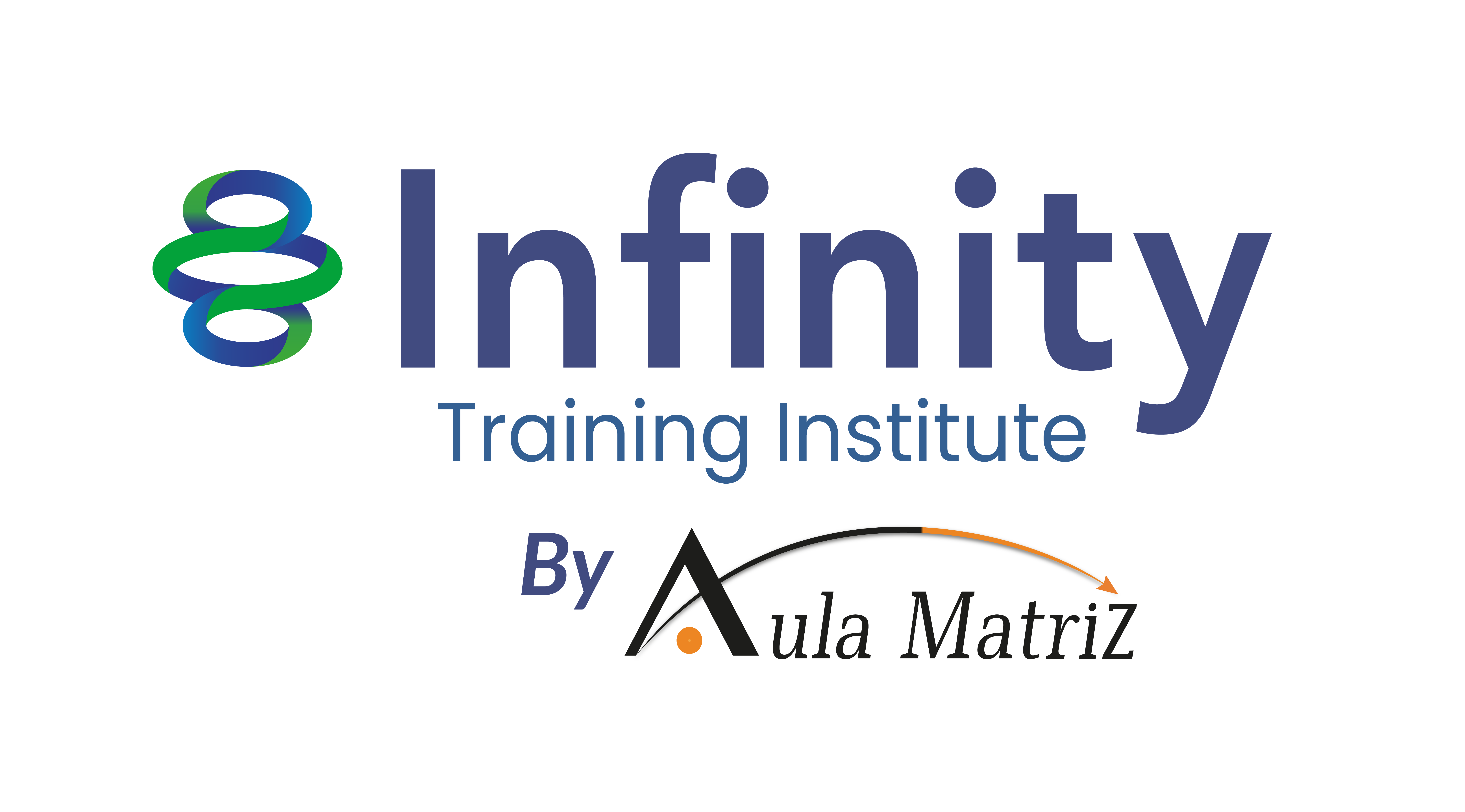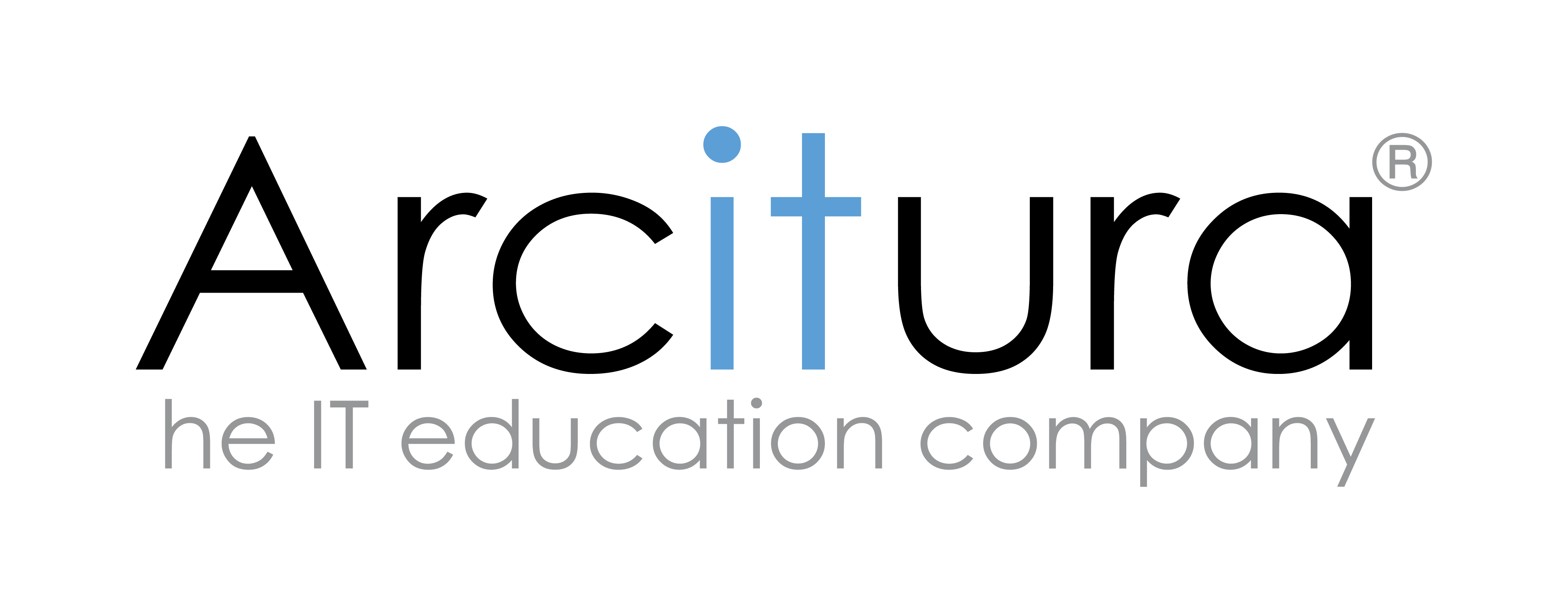The Certified Blockchain Architect course is designed to provide an integral understanding of how Blockchain works, its impact on business and its potential for digital transformation.
This training deepens the technology and architecture of Blockchain, exploring from its foundations to its application in different industrial sectors.
Following the practical Learning Method approach, participants will work on real laboratories and projects, ensuring the application of knowledge in business scenarios.
At the end, students will be prepared to perform as a blockchain Architect, Blockchain Developer or Blockchain consultant, in addition to obtaining the International Certified Certified Blockchain Architect issued by Arcitura - Next -Gen Academy.
At the end of the course, participants will be able to:
- Understand Blockchain architecture, from its operation to its impact on digital transformation.
- Apply blockchain in different business sectors, identifying strategic cases.
- Design and implement blockchain -based solutions, using specialized architecture models.
- Configure and customize blockchain networks, differentiating between public, private and permitted blockchains.
- Analyze the different consensus algorithms, such as Pow, POS, POA, DPOS and others.
- Apply principles of safety and cryptography in blockchain, including hashing and data encryption.
- Understand intelligent contracts and their implementation in blockchain.
Prepare for certification certified blockchain architect, ensuring the mastery of blockchain architecture.
To participate in this training, attendees must meet the following requirements:
- Participants must have professional experience and practical knowledge in roles such as developers or IT administrators.
- Computer concepts and networks.
- Internet operation
- Communication protocols (TCP/IP, HTTP)
- Basic database concepts.
- Fundamentals of cryptography (it is not mandatory, but it helps a lot)
- Hashing (Sha-256, Keccak)
- Public and private keys.
- Digital and certificated signatures
- Basic financial concepts (optional, but useful to understand blockchain applications such as cryptocurrencies)
- How digital transactions work.
- Decentralization and trust concepts
These requirements ensure that participants can focus on the practical application of concepts without the need for advanced prior knowledge or cryptography.
| Certificación internacional Certified Blockchain Architect | Applies |
|---|---|
| Certificación internacional Certified Blockchain Architect | 24 hours |
Learning Methodology
The learning methodology, regardless of the modality (in-person or remote), is based on the development of workshops or labs that lead to the construction of a project, emulating real activities in a company.
The instructor (live), a professional with extensive experience in work environments related to the topics covered, acts as a workshop leader, guiding students' practice through knowledge transfer processes, applying the concepts of the proposed syllabus to the project.
The methodology seeks that the student does not memorize, but rather understands the concepts and how they are applied in a work environment.
As a result of this work, at the end of the training the student will have gained real experience, will be prepared for work and to pass an interview, a technical test, and/or achieve higher scores on international certification exams.
Conditions to guarantee successful results:
- a. An institution that requires the application of the model through organization, logistics, and strict control over the activities to be carried out by the participants in each training session.
- b. An instructor located anywhere in the world, who has the required in-depth knowledge, expertise, experience, and outstanding values, ensuring a very high-level knowledge transfer.
- c. A committed student, with the space, time, and attention required by the training process, and the willingness to focus on understanding how concepts are applied in a work environment, and not memorizing concepts just to take an exam.
Pre-enrollment
You do not need to pay to pre-enroll. By pre-enrolling, you reserve a spot in the group for this course or program. Our team will contact you to complete your enrollment.
Pre-enroll nowInfinity Payments
Make your payment quickly, safely and reliably
- For bank transfer payments, request the details by email
capacita@aulamatriz.edu.co.
- If you wish to finance your payment through our credit options
(Sufi, Cooperativa Unimos or Fincomercio), click on the following link:
Ver opciones de crédito.
Description
The Certified Blockchain Architect course is designed to provide an integral understanding of how Blockchain works, its impact on business and its potential for digital transformation.
This training deepens the technology and architecture of Blockchain, exploring from its foundations to its application in different industrial sectors.
Following the practical Learning Method approach, participants will work on real laboratories and projects, ensuring the application of knowledge in business scenarios.
At the end, students will be prepared to perform as a blockchain Architect, Blockchain Developer or Blockchain consultant, in addition to obtaining the International Certified Certified Blockchain Architect issued by Arcitura - Next -Gen Academy.
Objectives
At the end of the course, participants will be able to:
- Understand Blockchain architecture, from its operation to its impact on digital transformation.
- Apply blockchain in different business sectors, identifying strategic cases.
- Design and implement blockchain -based solutions, using specialized architecture models.
- Configure and customize blockchain networks, differentiating between public, private and permitted blockchains.
- Analyze the different consensus algorithms, such as Pow, POS, POA, DPOS and others.
- Apply principles of safety and cryptography in blockchain, including hashing and data encryption.
- Understand intelligent contracts and their implementation in blockchain.
Prepare for certification certified blockchain architect, ensuring the mastery of blockchain architecture.
To participate in this training, attendees must meet the following requirements:
- Participants must have professional experience and practical knowledge in roles such as developers or IT administrators.
- Computer concepts and networks.
- Internet operation
- Communication protocols (TCP/IP, HTTP)
- Basic database concepts.
- Fundamentals of cryptography (it is not mandatory, but it helps a lot)
- Hashing (Sha-256, Keccak)
- Public and private keys.
- Digital and certificated signatures
- Basic financial concepts (optional, but useful to understand blockchain applications such as cryptocurrencies)
- How digital transactions work.
- Decentralization and trust concepts
These requirements ensure that participants can focus on the practical application of concepts without the need for advanced prior knowledge or cryptography.
offers
| Certificación internacional Certified Blockchain Architect | Applies |
|---|---|
| Certificación internacional Certified Blockchain Architect | 24 hours |
Learning Methodology
The learning methodology, regardless of the modality (in-person or remote), is based on the development of workshops or labs that lead to the construction of a project, emulating real activities in a company.
The instructor(live), a professional with extensive experience in work environments related to the topics covered, acts as a workshop leader, guiding students' practice through knowledge transfer processes, applying the concepts of the proposed syllabus to the project.
La metodología persigue que el estudiante "does not memorize", but rather "understands" the concepts and how they are applied in a work environment."
As a result of this work, at the end of the training the student will have gained real experience, will be prepared for work and to pass an interview, a technical test, and/or achieve higher scores on international certification exams.
Conditions to guarantee successful results:
- a. An institution that requires the application of the model through organization, logistics, and strict control over the activities to be carried out by the participants in each training session.
- b. An instructor located anywhere in the world, who has the required in-depth knowledge, expertise, experience, and outstanding values, ensuring a very high-level knowledge transfer.
- c. A committed student, with the space, time, and attention required by the training process, and the willingness to focus on understanding how concepts are applied in a work environment, and not memorizing concepts just to take an exam.
Infinity Payments
Make your payment quickly, safely and reliably
- For bank transfer payments, request the details by email
capacita@aulamatriz.edu.co.
- If you wish to finance your payment through our credit options
(Sufi, Cooperativa Unimos or Fincomercio), click on the following link:
Ver opciones de crédito.
Course Modules
Module I: Fundamentals of Blockchain
This module provides a clear understanding, from start to finish, of how blockchain works. It breaks down the technology and architecture of blockchain into concepts, terms, and building blocks that are easy to understand. The industry factors and impacts of blockchain are explained, followed by simple English descriptions of each of the main parts of the blockchain system and step-by-step descriptions of how these parts work together.
The following main topics are covered:
- Benefits and Challenges of Blockchain
- Blockchain Business Drivers and Technology Drivers
- Understanding Blockchain's Decentralized Model
- Blockchain Value Propositions
- How Blockchain Can be Used for Different Industries
- Blockchain Applications, Networks and the Distributed Ledger
- How the Distributed Ledger Can Relate to Relational Database
- Fundamental Components of a Blockchain Architecture
- Transactions, Records and Pools
- Blocks, Chains and Block Headers
- Blockchain Users, Full Nodes and Partial Nodes
- Step-by-Step Understanding of the Record and Block Lifecycle
- Step-by-Step Understanding of How the Merkle Tree Works
- Step-by-Step Understanding of How Consensus Works
- Consensus Algorithms (PoW, PoS, PoA, DPoS, LPoS, PoI, PoET, PoC, PoB, Round Robin)
- Public vs. Private / Permissionless vs. Permissioned Blockchains
- Coins, Tokens, Smart Contracts
- Basics of Crypto Hashing and Cryptography
- On-Chain, Off-Chain and Cross-Chain Activity
- Understanding Soft Forks and Hard Forks
- Common Blockchain Metrics
Module II: Blockchain Technology and Architecture
This module delves into the architecture of blockchain technology and the internal workings of blockchains, exploring a series of design patterns, techniques, and key related architectural models, along with common technology mechanisms used to customize and optimize blockchain application designs, in support of full compliance with business requirements.
The following main topics are covered:
- Common Blockchain Technology Mechanisms and Artifacts
- Node Monitor, Automated Node Deployer, Node Placement Monitor
- Consensus Processor, Block Maker, Identity Federator
- Hashing Engine, Chaining Engine, Identity Verifier, Wallet
- Node Repository, Ledger Replicator, Live Node Migrator
- Integrity and Validation Blockchain Design Patterns
- Block Singleton, Sidechain, Block Validation Consensus
- Scalability and Reliability Blockchain Design Patterns
- Auto-Scaling Nodes, Guaranteed Minimum Full Nodes
- Geo Scaling, Block Size Update
- Security and Privacy Blockchain Design Patterns
- Forced On-Chain Transactions, Federated Chain
- User Data Protection
- Utility Blockchain Design Patterns
Module III: Blockchain Technology and Architecture Laboratory
Completing this laboratory will help highlight areas that require greater attention and will test the practical ability in technologies, mechanisms, and security controls of blockchain when applying and combining them to solve real-world problems. In the application of this instructor-led laboratory course, the Certified Instructor works closely with the participants to ensure that all exercises are completed thoroughly and accurately. Attendees may voluntarily request the review and grading of the exercises as part of the class. To undertake this course individually as part of a study kit, certain supplements are provided to assist participants in completing the exercises in a guided manner.



